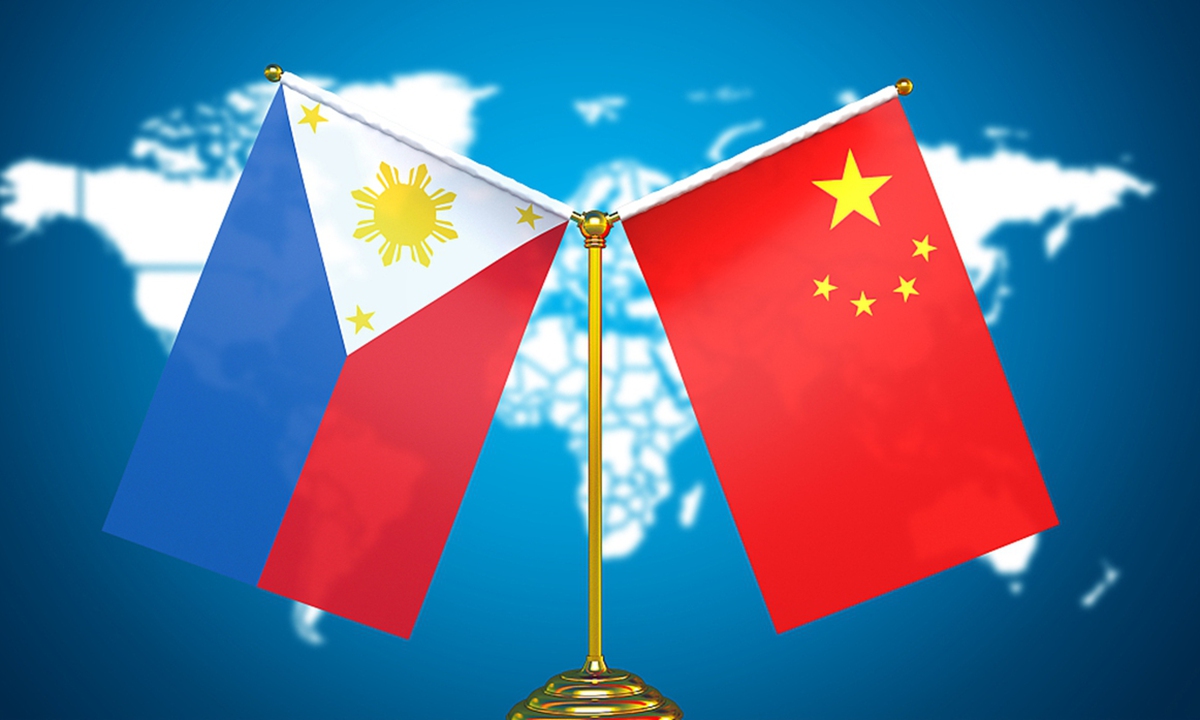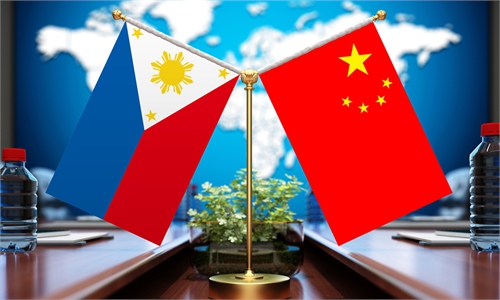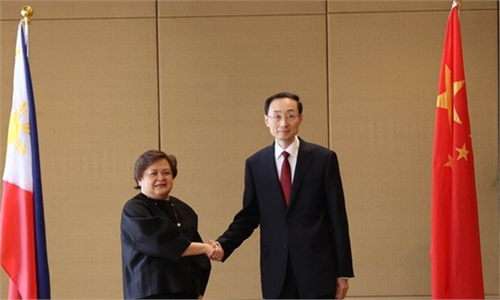China, Philippines need concerted efforts to pull out wedge driven by US in ties: Global Times editorial

china philippines
Chinese State Councilor and Foreign Minister Qin Gang has been invited to make an official visit to the Philippines from April 21 to 23. It is expected that he will discuss South China Sea issues with the Philippine Foreign Minister, as well as cooperation in agriculture, trade, energy and infrastructure. Many international media outlets have mentioned the background of this visit: that China-Philippines relations have experienced setbacks or negative trends in recent times. Although the bilateral relations between the two countries do face certain problems, Qin's visit is expected to promote targeted clarification and confidence-building between the two countries, and avoid any major deviation in their relationship.
From the perspective of the Chinese side, recent strong statements from the Philippines on the South China Sea issue have raised questions, and the close military cooperation between the Philippines and the US has reached a concerning level. It is necessary for the Philippine side to provide more sufficient explanations, as their current statements are not enough to dispel China's doubts and concerns. China has always regarded the Philippines as a good neighbor for mutual assistance, a close relative for mutual understanding, and a good partner for win-win cooperation. China hopes to have candid communication with the Philippine side.
Philippine President Ferdinand Marcos Jr's visit to China in January this year was highly successful. The meeting between the leaders of China and the Philippines reached a series of significant achievements in expanding pragmatic cooperation and enhancing strategic mutual trust, which set the direction and laid the foundation for the future development of bilateral relations. The two leaders reiterated their commitment to properly handle maritime issues through friendly consultations and announced the resumption of negotiations on joint oil and gas exploration, sending positive signals of peace and development.
However, it is clear that there are those who do not want to see the smooth development of China-Philippines relations. Just a few weeks after Marcos' successful visit to China, US Secretary of Defense Lloyd Austin visited Manila and, using some kind of "intoxicant," persuaded the Philippines to sign an agreement to expand the use of military bases. Subsequently, US-Philippine military cooperation accelerated, not only openly intervening in the South China Sea dispute, but also extending in a direction that harms China's territorial sovereignty, maritime rights, and security interests. This is unacceptable to China.
At the beginning of April, the Philippines announced the opening of four new military bases for the US, three of which face toward the Taiwan Straits and the other one is close to the Nansha Islands in the South China Sea. The US intentions are obvious, and this is not just simple US-Philippine military cooperation not aimed at any specific third party, but it is bound to harm regional peace and stability. This decision by the Philippines has damaged the strategic mutual trust between China and the Philippines, and it plays right into the hands of Washington. On April 11, the Philippines and the US held a "2+2" ministerial dialogue and issued a joint statement that distorted and vilified China's legitimate and legal maritime law enforcement activities, even fabricating falsehoods to smear China, and even mentioning the issue related to the Taiwan Straits. All of these actions target China.
We have witnessed the Philippines being gradually coerced into deeper waters by its military cooperation with the US, and it is concerning. The Chinese Foreign Ministry spokesperson, without specifically naming any country, said "we would like to once again remind the relevant country in the region that pandering to forces outside the region will not bring greater security, but will cause tensions, put regional peace and stability at risk and eventually backfire." China has shown the utmost respect and goodwill toward the Philippines, with great restraint in its tone, yet the Chinese position and bottom line on its interests are crystal clear. The Philippines should not be oblivious to this.
Frankly speaking, these "tense situations" between China and the Philippines should not have existed in the first place. Regional countries, including China and the Philippines, have demonstrated their ability to handle the South China Sea issue without the need for external interference, and the Taiwan question is purely a matter of China's internal affairs with no relevance to the Philippines. The introduction of US elements into these two issues benefits whom and who bears the greatest risks, the Philippines should be able to calculate this account clearly.
The pro-US and anti-China forces within the Philippines have been invigorated and are now quite active. They are the main force in catering to external forces, making the policy environment of the Philippines toward China more complicated. The Philippine government should maintain a high degree of sober mind. The country has repeatedly emphasized it has no intention of taking sides, which does not serve the interests of the Philippines. Perhaps to dispel any doubts from the Chinese side, Philippine Foreign Secretary Enrique Manalo stated on April 19 that the Philippines will not allow the US to store weapons in military bases in the Philippines for use in Taiwan military operations, nor will it allow US military ships and planes to refuel, repair, or re-equip at the bases. This is seen as an attempt by Manila to achieve a "balance" between China and the US.
While we acknowledge the Philippines' efforts, it is important to stress that sincerity and a sober mind are equally essential in this regard apart from excellent diplomatic skills. We recommend that the Philippines make the right choices based on its national interests and international norms and principles. Now that the US has driven a wedge between China and the Philippines, China and the Philippines need to work together to pull it out. The invitation of Qin's visit to the Philippines may be seen as a step toward achieving this goal.


